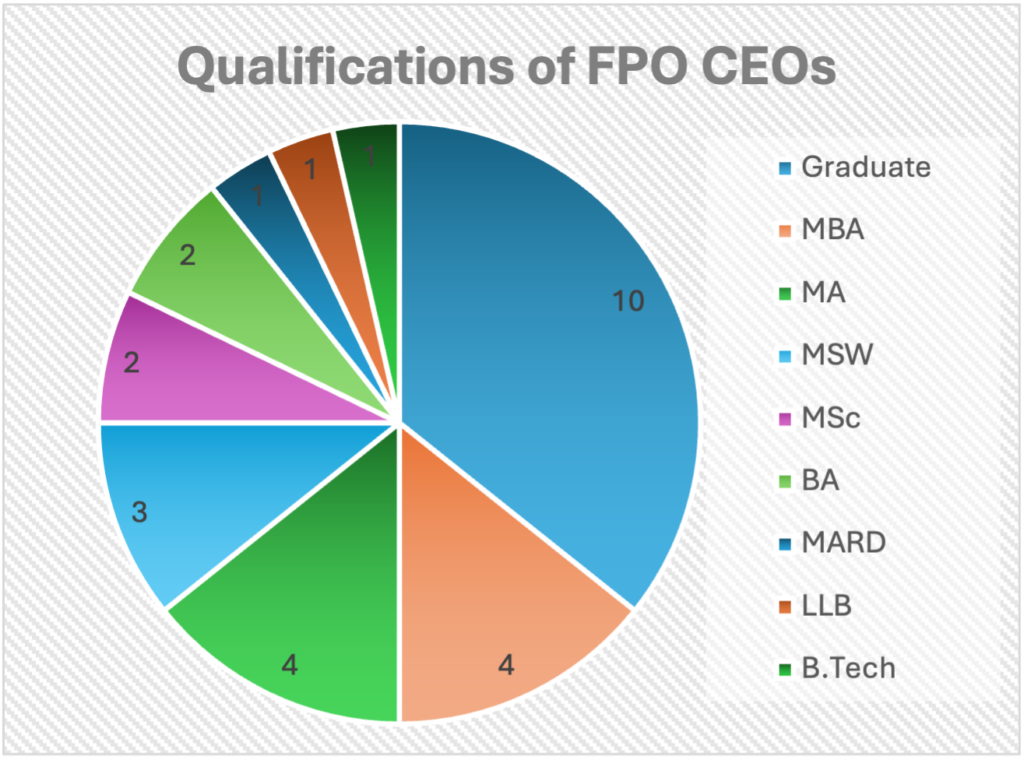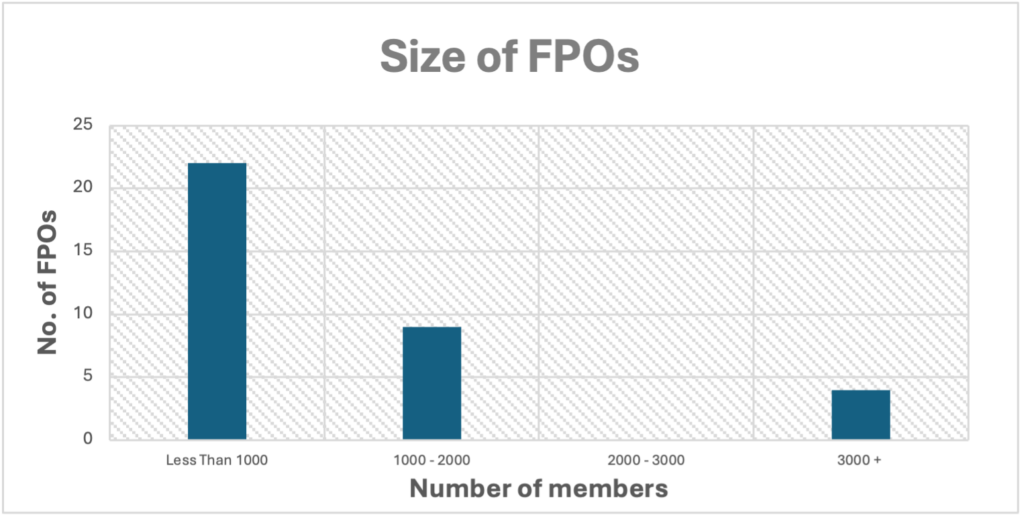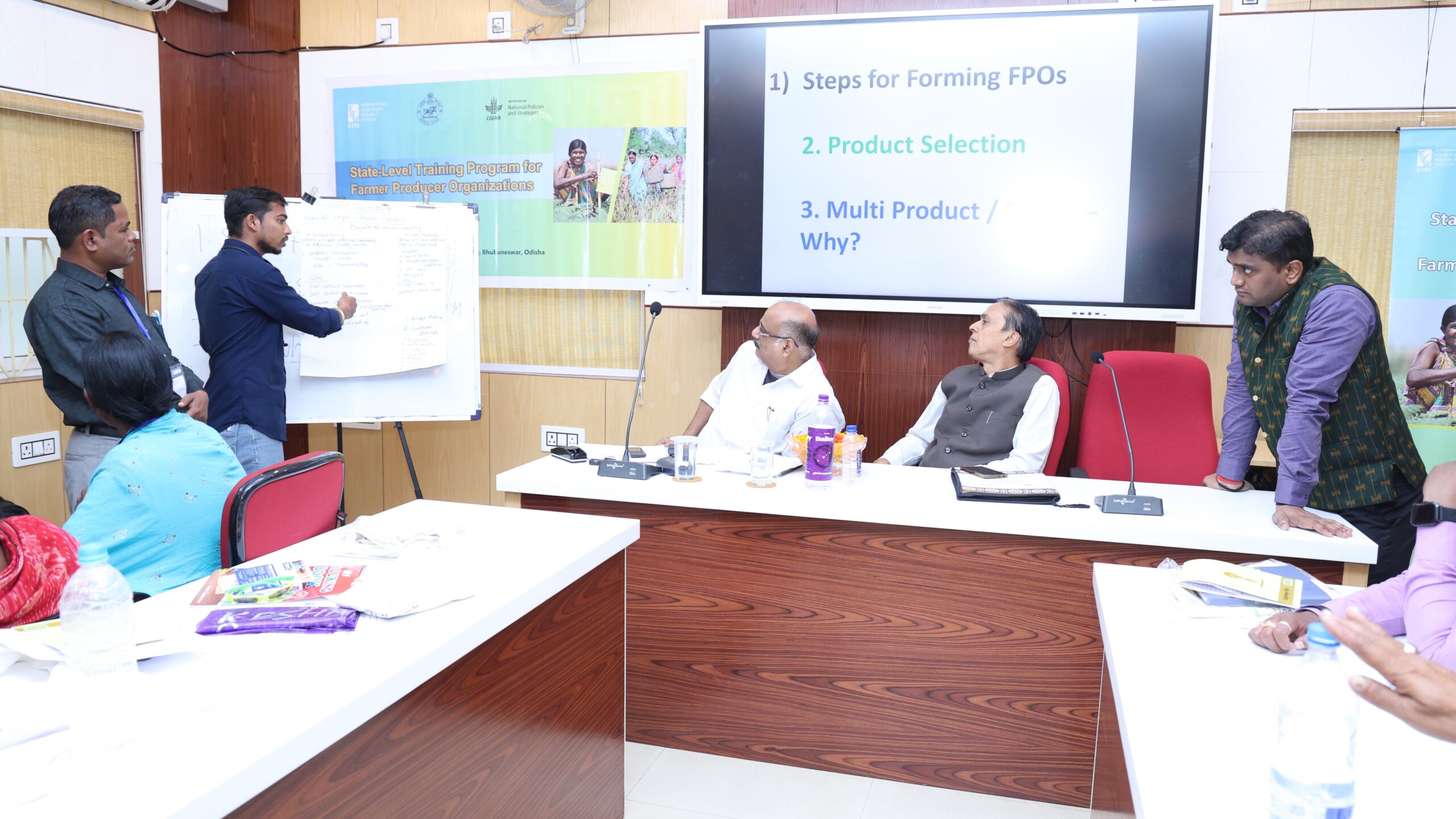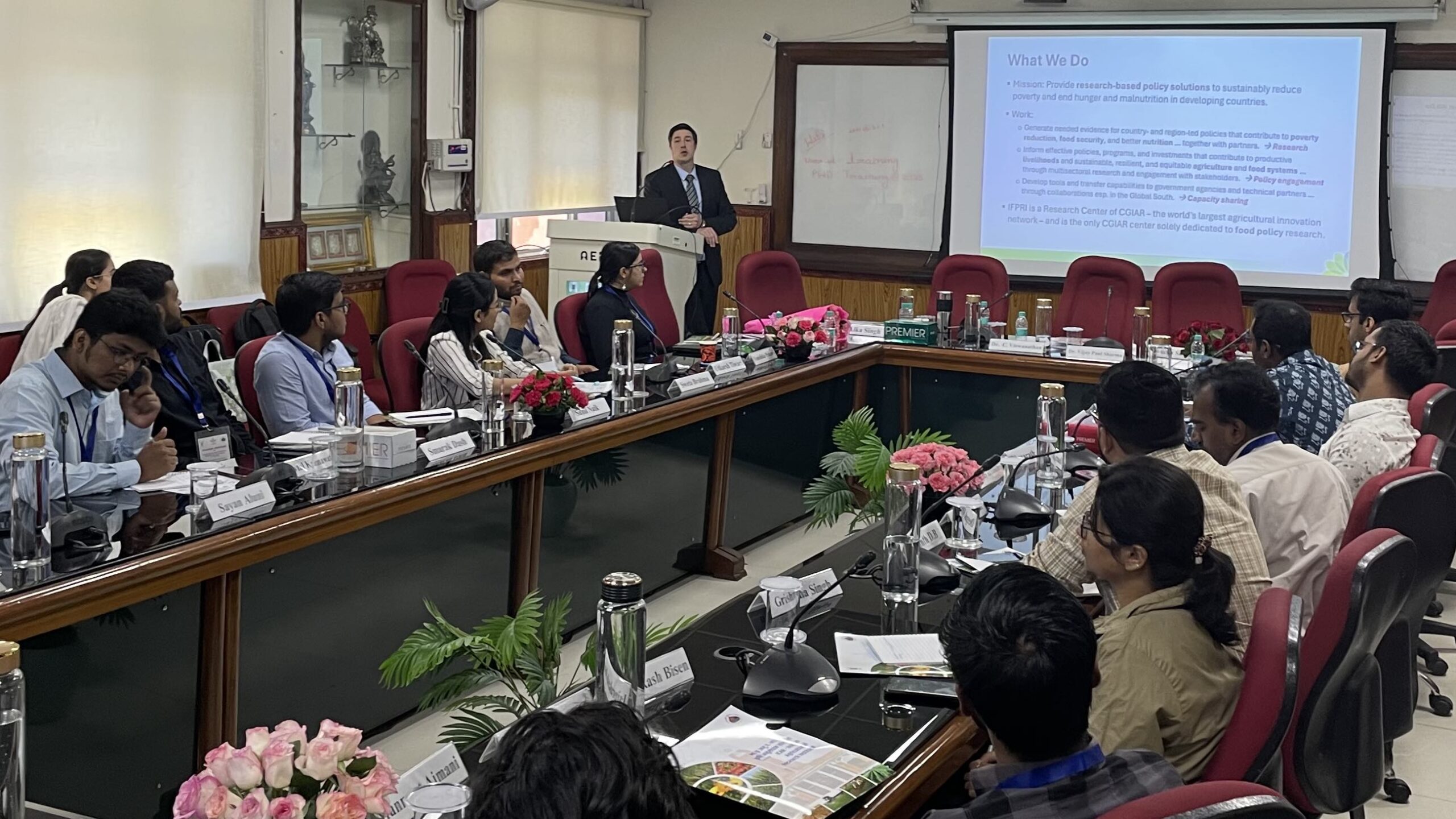India’s aggressive promotion of farmer producer organizations, which allow participants to pool resources, engage with markets, and share profits, has driven the creation of 44,460 FPOs since 2013, following the enactment of a new law allowing 10 or more farmers to form a company.
Most of the expansion has occurred in this decade, with 35,259 FPOs formed between 2020 and September 2024, overshooting the government’s own goal of 10,000, part of a $750 million program—the Central Sector Scheme for Formation and Promotion of FPOs—launched in 2020.
The program aims to facilitate the formation and development of FPOs within specific agricultural clusters, thus enhancing farmers’ market access, productivity, and income by promoting collective action, value addition, and better market linkages, ultimately contributing to the socio-economic development of farm communities.
The government’s financial support for FPOs, and for Cluster-Based Business Organizations (CBBOs), which support FPO formation and development, has fueled this rapid growth. Under the Central Sector Scheme, FPOs receive 18 lakhs ($19,800) for three years and CBBOs 25 lakhs ($27,500) for five years to cover management costs.
This rapid scale-up has led to a number of serious problems. CBBOs have varied capacities, and some lack the institutional knowledge needed to effectively guide FPOs. This has led in turn to inappropriate selection of FPO leaders—giving preference to members with credentials to obtain the support payments, rather than those most capable of building organizational capacity. This in many cases has resulted in elite capture of company boards, making decisions non-transparent and non-inclusive. Another Central Sector Scheme feature, offering FPOs matching grants of up to ₹15 lakhs ($17,000) has exacerbated the problem, pushing up FPO participation while little attention is paid to the long-term business interests of members.
Recognizing the critical role of FPOs in economic development, IFPRI has undertaken research to understand these issues and other challenges they face. Conducted across two states—Bihar and Maharashtra—research efforts analyzed key factors influencing FPO performance, including size, composition, organizational design, and financial management.
A survey was conducted across randomly selected districts in Bihar and Maharashtra, covering all four agroclimatic zones in Bihar and three major agroecological regions in Maharashtra. A total of 575 farmers were surveyed in Maharashtra, including 400 FPO members and 175 non-members. The study used mixed methods, combining quantitative surveys, focus group discussions, and expert elicitation to collect data on demographics, farming experience, income sources, and expenditures.
The findings revealed that many FPOs struggle with issues such as short lifespans, misaligned incentives, negative selection of leaders and members due to over-emphasis on size, inadequate access to markets, and limited financial sustainability. These challenges often stem from weaknesses in organizational structure, governance, and management practices.
For example, the assumption that “bigger is better” regarding FPO size has caused challenges for members in terms of aggregation and sales of outputs to the FPO, internal conflicts, and inefficiencies. And though some FPOs formed through a diligent process have had good results, many are still facing challenges related to management and governance.
Many FPOs are out of legal compliance and/or apparently not functioning; government data show that as of 2024 there were 26,938 active and legally compliant FPOs, and only 57% of those submitted financial documents in 2023 as required by law. The bigger FPOs like the 5,000-member Samarth Producer Company Limited in Madhya Pradesh face challenges in reaching out to all members, many of whom express discontent over limited membership benefits.
Training for better FPO management
Building upon these research findings, IFPRI organized a two-day, state-level training program for selected FPO functionaries in Odisha, carried out in collaboration with the state Department of Agriculture & Farmers’ Empowerment (DAFE) and with the support of the CGIAR Initiative on National Policies and Strategies.
The training aimed to address current challenges and develop approaches to make the participating FPOs better organized, efficient, and profitable. Three two-day training workshops were organized for 38 FPOs across Odisha’s 30 districts between December 12-23, 2024. The program involved 130 FPO representatives, including Directors and CEOs, selected based on district, age, turnover, women’s participation, and compliance.
A dynamic and engaging methodology was designed to facilitate learning and knowledge sharing among participants—incorporating a diverse range of approaches, including experiential learning, case studies, group work, presentations, and discussions. This multifaceted approach aimed to make the training not merely a passive transfer of information but an experience that fostered active learning and knowledge sharing among FPO representatives.
The program was designed to equip the FPOs with key strategies for success. It emphasized the importance of optimizing the size of FPOs from a management and engagement point of view and optimizing their composition based on shared interests and skills for effective collaboration and decision-making. Participants learned about transparent governance, strong leadership, and establishing clearly defined roles for active member engagement. The program also covered value chain development, marketing strategies, and the importance of branding and certification. Financial management best practices were emphasized to promote sustainable business models.
Addressing FPO challenges
To address the challenges they face in design and composition, FPOs need a strategic shift in focus. Key solutions discussed during the training include:
Optimizing composition: FPOs should ensure the right mix of staff to handle marketing, procurement, logistics, and accounting. An IFPRI analysis of 28 sample FPOs revealed a trend of hiring CEOs with development backgrounds, meaning less commercial orientation overall (Figure 1). Professional expertise is crucial for the growth of FPOs in terms of business, productivity, and profitability. Without a strong foundation in business understanding, CEOs may struggle to drive the growth of FPOs within the expected time frame.
Figure 1

Prioritizing quality over quantity: The IFPRI study shows that smaller, well-managed FPOs with strong member engagement are generally the most effective. For larger FPOs, creating clusters or specialized departments can enhance management. Among sampled FPOs, over 50% were classified as small (less than 1,000 members), and less than 1% large (over 3,000 members). Notably, size did not correlate with better business outcomes.
Figure 2

Improving member selection: Selection should prioritize active and committed farmers, beyond basic documentation. Regular director rotations through annual general meetings (AGMs) can address issues in representation and accountability.
Promoting sustainable business models: Emphasis should be placed on value addition, creation, and diversifying income sources to ensure long-term viability.
Shifting focus from grants to sustainability: While government support is important, FPOs should explore alternative funding sources and develop self-sustaining financial models to reduce dependency on grants.
Conclusion
Participants also were able to discuss these issues with Odisha state officials: DAFE’s Additional Secretary Sri Shubhranshu Mishra, DAFE’s Deputy Director Sangram Keshari Pattanaik, and Principal of the State Institute for Training & Extension, Sri Purna Charan Shaw.
By focusing on the training aims of optimizing FPO size, strengthening governance, and promoting value creation, organizers and participants believe that FPOs in the state can address the current problems due to rapid expansion. This will also enhance their resilience, improve their performance, and contribute significantly to the development of the agricultural sector.
Amit Kumar Burman is a Project Coordinator with IFPRI’s Development Strategies and Governance Unit, based in Bhubaneshwar, Odisha; Shubhranshu Mishra is Additional Secretary, Odisha Administrative Services; Dr. Sangram Keshari Pattanaik is Deputy Director-Agriculture, Department of Agriculture and Farmers’ Empowerment, Government of Odisha; Vandana Vidhani is a DSG Research Analyst based in Bhubaneshwar, Odisha. Opinions are the authors’.
This work was supported by the CGIAR Initiative on National Policies and Strategies.







